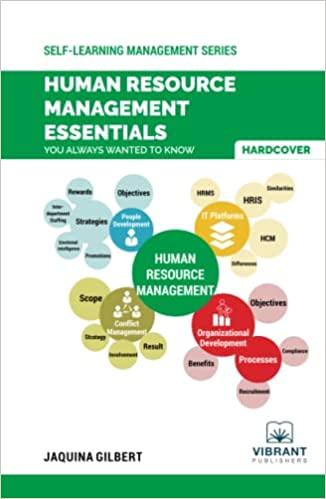Question
Hello, this is an IDS 105 question. If you can help answer the questions listed under your Initial Post. Then answer 1A) and 1B) with
Hello, this is an IDS 105 question. If you can help answer the questions listed under your Initial Post. Then answer 1A) and 1B) with the questions listed under. Thank you.
Cultural awareness requires that you understand your cultural worldview and how the experiences you have lived can impact your perceptions of cultural differences. Regardless of your experiences, it's important to listen to others with empathy and give them a safe space to communicate and be heard. In this discussion, you will explore strategies you can use to listen to others with empathy in online learning environments. You do not need to describe a specific event; you only need to discuss the strategies for listening with empathy.
Discussing challenges that face our world often means investigating opinions and ideas different from your own. Remember to remain thoughtful and respectful towards your peers and instructor in your initial and response discussion posts.
Create one initial post and respond to at least two of your classmates.
For your initial post, address the following:
- How do you listen to others with empathy in the online learning environment? (Or how could you?)
- How have others listened to you with empathy?
1A) In the online learning environment, such as ours, where direct video interaction might be absent, developing empathy through written communication becomes crucial. When engaging with peers through weekly posts, I strive to read carefully, paying attention to the tone and emotions conveyed in their messages. I respond thoughtfully, acknowledging their experiences and feelings, expressing understanding and support. Despite the absence of Zoom meetings, some classmates have shown empathy by responding to my posts with genuine understanding and support. They take the time to read my post, acknowledge my thoughts and feelings, offering encouraging words or sharing their own experiences in a way that makes me feel heard and valued.
- How can you move from listening with empathy in the classroom to listening to others with empathy outside the classroom?
- What additional feedback and strategies may strengthen your peer's opportunities to be more inclusive of others with diverse backgrounds?
1B) Communicating face-to-face is a lot different than through the computer or phone. Face-to-face allows you to use several elements that cannot be used through texts, emails, or calls. For example, when talking to someone in person, it's easy to understand what they're trying to convey. They could be rolling their eyes, crossing their arms, or speaking with a certain tone. However, if you tried to convey the same thing through text, it would be taken a different way. Miscommunication happens all the time. However, it's important to remain respectful and ask clarifying questions if need be. As you build your relationship online, miscommunication happens less frequently and you understand each other better. It's important to share your opinions, listen carefully, and be open to change. Listening with empathy in the online setting is similar. You must give your friend your time and attention and allow opinions to be shared respectfully. You should try to ask questions that allow you to know the person a little better. As your friendship grows, you can understand them and their problems. You must listen to them and truly hear them. They want someone to understand and help them through the problem. Others have listened to me by communicating respectfully and with the intention to help. They asked questions to understand my situation and my issues. Then, they were able to effectively help me and our friendship grew, even though it was only communicating through texts. Now, we send memes to each other that we think the other would enjoy. It's a good time.
- How can you move from listening with empathy in the classroom to listening to others with empathy outside the classroom?
- What additional feedback and strategies may strengthen your peer's opportunities to be more inclusive of others with diverse backgrounds?
Step by Step Solution
There are 3 Steps involved in it
Step: 1

Get Instant Access to Expert-Tailored Solutions
See step-by-step solutions with expert insights and AI powered tools for academic success
Step: 2

Step: 3

Ace Your Homework with AI
Get the answers you need in no time with our AI-driven, step-by-step assistance
Get Started


